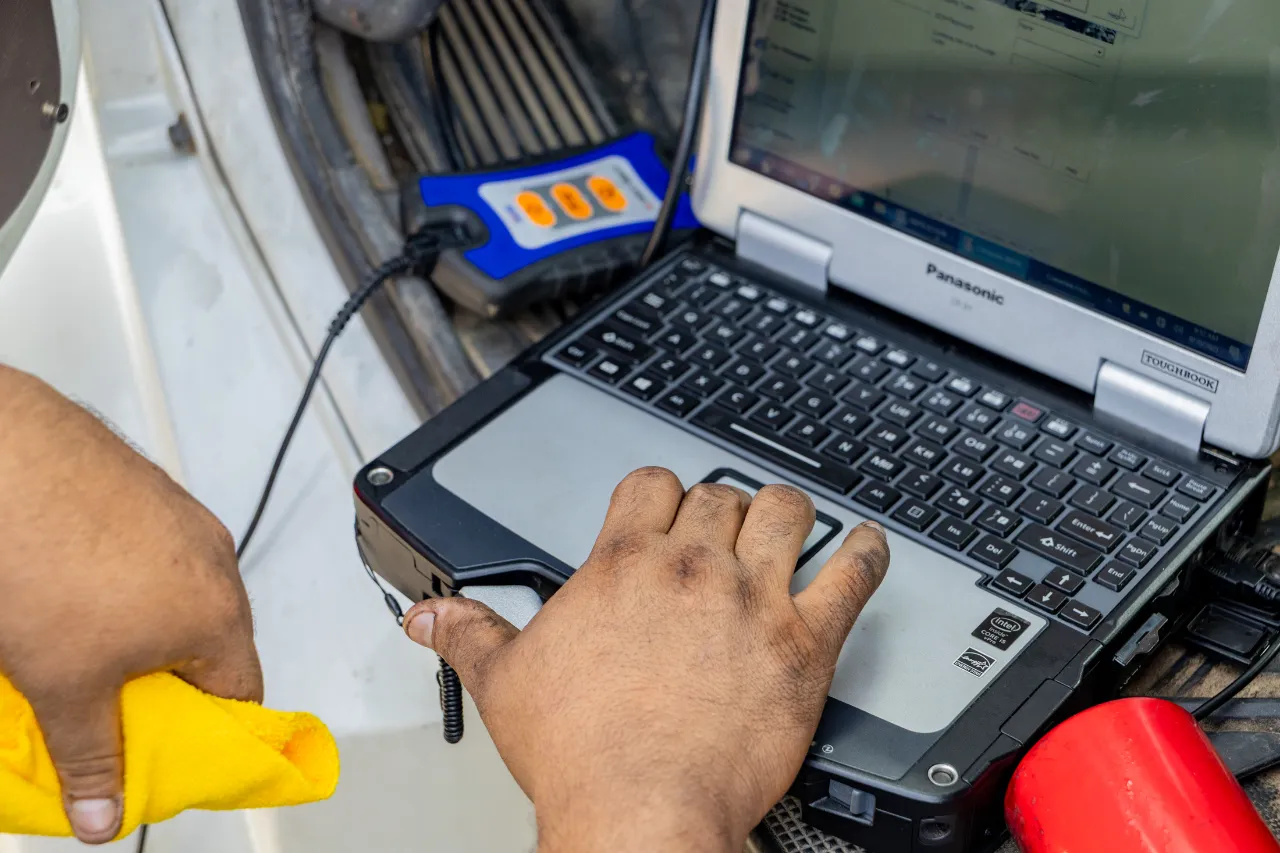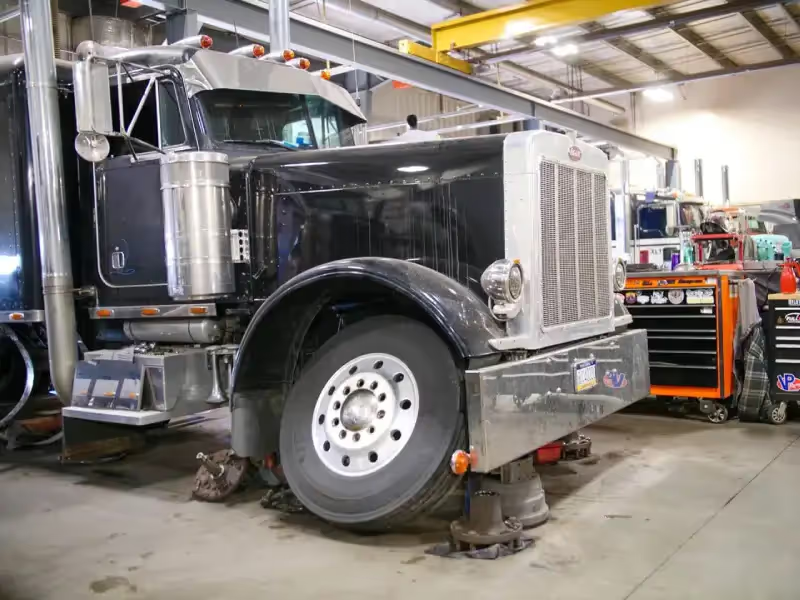5 Electrical Components That Frequently Fail in Heavy-Duty Vehicles

When you’re hauling freight through Florida’s heat or grinding through a long haul across state lines, one of the last things you want is a mysterious electrical issue. And yet, electrical failures are one of the most common issues in heavy-duty vehicles. From starter motors that click instead of crank to dash lights flickering like a haunted house, electrical issues can bring even the mightiest rig to a standstill.
So, which components are most likely to leave you stuck on the shoulder? Let’s break it down.
1. Batteries
If your truck suddenly won’t start, batteries are the first place to look. These power your starter motor, glow plugs, and fuel injection system on ignition. But between extreme temperatures, long idle periods, and vibration from rough roads, even a high-quality battery can wear down faster than expected.
Signs of failure:
- Dim headlights
- Slow crank or no crank
- Warning lights or voltage fluctuations
Why they fail:
- Heat exposure (especially in Lakeland’s hot climate)
- Corroded terminals
- Parasitic draw or failing alternator
Pro tip: Regular load testing and terminal cleaning during preventive maintenance can catch weak batteries before they strand you.
2. Alternator
Your alternator replenishes your battery and powers your truck’s lights, HVAC, and electronics via a serpentine belt-driven turbine.
Signs of failure:
- Dead battery (despite recent replacement)
- Dimming lights while idling
- Warning light on the dash (battery symbol)
Why they fail:
- Worn brushes or bearings
- Belt issues or pulley misalignment
- Overheating or contamination with oil/coolant
What to watch out for: If your alternator fails, your battery becomes the backup power source—and that backup drains fast when you're pulling a full load.
3. Starter Motor
Turn the key and get nothing but a click? Odds are your starter motor has called it quits. This component turns your crankshaft at startup to initiate combustion.
Signs of failure:
- One loud click with no engine turnover
- Whining sound
- Complete silence when turning the key
Common causes:
- Heat soak (especially in tight engine bays)
- Worn brushes or solenoid
- Poor connections or grounding
Lakeland tip: In hot climates like Florida, starter heat soak is a common issue. A heat shield or relocation can sometimes help mitigate repeated failures.
4. Wiring Harnesses
Out of sight, out of mind—until a faulty wiring harness wreaks havoc on your systems. Modern heavy-duty trucks are wired like small cities, with intricate harnesses managing everything from aftertreatment systems to transmission controls.
Symptoms of a bad harness:
- Intermittent fault codes
- Electrical shorts
- Burning smells or melted insulation
Why they fail:
- Vibration and rubbing against engine components
- Water intrusion and corrosion
- Rodent damage (yep, it happens even in fleet yards)
Shop insight: Electrical issues can be difficult to trace. Visual inspections during scheduled mobile service are key, especially around high-heat areas like near the DPF system or exhaust manifold.
5. Glow Plugs
Diesel engines don’t have spark plugs—they rely on compression ignition. But in cooler temps (yes, even Florida gets a chill in winter), glow plugs heat the air-fuel mixture for a reliable start.
Symptoms of bad glow plugs:
- Hard starting, especially in the morning
- Excessive white smoke at startup
- Rough idle until the engine warms
Why they fail:
- Age and use
- Carbon buildup
- Voltage spikes or bad relays
Replacement tip: Don’t just replace one—if one glow plug is finished, chances are the others aren’t far behind. A full set swap is usually smarter and prevents misfires.
How to Prevent Electrical Failures in Your Rig
You can’t always predict an electrical failure—but you can prepare for one. Here’s what you should be doing regularly:
- Check electrical grounds and terminal connections
- Load test batteries every service interval
- Inspect the belts driving your alternator for cracks or slack
- Scan for fault codes, even if the dash looks clear
- Perform visual inspections of wiring near heat-prone components
For fleet operators, partnering with a mobile diagnostic service provider like MTI Mobile Repair Services in Lakeland, FL ensures those electrical checks get done without pulling trucks off the road.
Final Thoughts
Electrical issues may start small—a flicker here, a click there—but they can snowball into serious downtime. By knowing which components are most vulnerable and what warning signs to watch for, you’re not just keeping your rig running—you’re keeping your business moving.
Don’t wait until you’re stuck on I-4 in the middle of rush hour. If your heavy-duty vehicle’s electrical system is acting up, get it checked by the mobile experts at MTI Mobile Repair Services in Lakeland, FL. Stay powered, stay on the road.
More Articles

%20(1).avif)